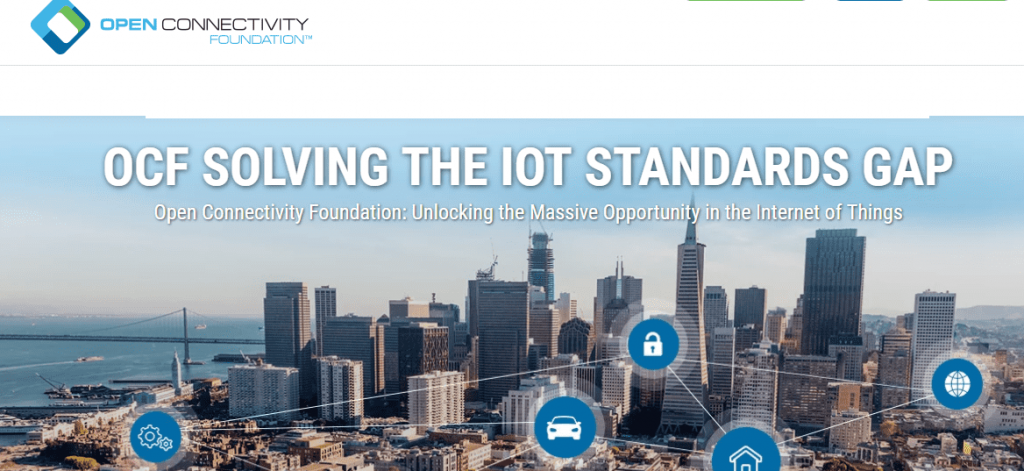Research shows that revenue from the smart home market is expected to show an annual growth rate of 17.6 percent, resulting in a global market volume of more than US $141 billion by 2023. As the smart home market continues to grow, what is required is secure interoperability.
This is where the Internet of Things (IoT) standards body, the Open Connectivity Foundation (OCF) comes in. The OCF Certification Program helps manufacturers create products that “just work” with other OCF Certified IoT devices regardless of their form factors, operating systems, service providers or transports. At the on-going CES 2020 at Las Vegas, OCF showed off its 2.1 specification, a recognised ISO standards specification that “ensures this interoperability is built into all ‘OCF certified’ devices. ”
At the event, the Open Connectivity Foundation (OCF) showcased products from BSC Computer GmbH, COMMAX, Haier, LG Electronics, Resideo, Samsung Electronics and SURE Universal compatible with the OCF 2.1 standard. These devices will complete OCF 2.1 certification in 2020, ensuring robust and secure connectivity between devices. Many of these and other industry-leading OCF member companies will be commercially launching products based on the OCF specification in 2020, said OCF.

The OCF supports standardised procedures for bridging to other IoT ecosystems and provide detailed implementations for Bluetooth, EnOcean, Zigbee and Z-wave protocols.
“In the near future, smart homes and buildings will have typically over 200 different products improving comfort, security and energy usage. Having all of these powered by mains cables or batteries which need to be regularly changed or re-charged is simply not practical,” said Jörg Hofmann, Chief Executive Offcer, BSC Computer GmbH, in a written statement. “By introducing the EnOcean energy harvesting wireless standard into the OCF world, BSC Computer has enabled simple addition of multiple ‘peel and stick’ maintenance-free sensors and switches into their smart buildings via the BSC smart secure gateway, a major expansion and improvement of the excellent interoperable OCF eco-system.”
“The world has become too complex and diverse for any one company to be able to meet all different demands of customers,” said I.P. Park, president and CTO of LG Electronics in a written statement. “LG is driving digital transformation in manufacturing and integrating AI into a whole portfolio of products to eventually provide our customers with benefits of a seamless and intelligent connected experience. We will leverage standardized OCF Universal Cloud Interface to facilitate open collaboration across industries and to realize the full potential of AI for a truly better life.”
The OCF Universal Cloud Interface
The OCF said its new OCF Universal Cloud Interface (UCI) was the industry’s first solution to unify the IoT ecosystem through Cloud-to-Cloud connectivity based on OCF’s work with Open Standards.
The OCF UCI is a programming interface that can be used to standardise connectivity between different manufacturers’ Cloud servers, and between devices and the Cloud. This Cloud application programming interface (API) helps the IoT industry to streamline partnerships and avoid implementing and maintaining numerous proprietary programming interfaces at once.
“Different configurations of the same OCF UCI can simplify collaboration between device manufacturers who wish to produce IoT devices but do not have the ability to develop and support their own cloud applications,” said John Park, Executive Director, OCF, in a written statement. “This configuration can also help companies that have Cloud applications and wish to expand the number of devices that can connect to them. Specifically, the manufacturers can produce a single device that connects to any cloud application provided both implement the OCF UCI API. This enables a multitude of manufacturers to produce secure, interoperable IoT devices and delivers welcome flexibility to end users.”
The OCF UCI is based on the OCF’s proximity framework that enables communication between IoT devices and applications over a local network. It uses the same data models and core technology. As with OCF proximity communications, an open source implementation is available.
Image Credit: OCF
